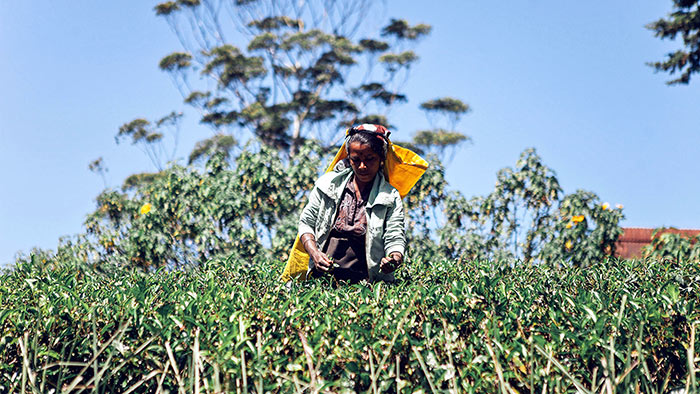Syria starts buying tea from India in absence of supplies from Sri Lanka

(Photo: Pexels)
Syria has started buying tea from India after a gap of 50 years, and because of US and European Union sanctions on the Western Asian country, the consignments are routed through Lebanon, traders said.
Countries such as Iraq and Turkey are also buying good quantities of orthodox teas from India in the absence of supplies from Sri Lanka in the market, they said.
“Syria has started buying tea from India in the absence of Sri Lanka, which is a major orthodox player. Tea is going to the country through Beirut and payment is routed through some other countries. The demand for orthodox tea in Syria is good,” said Anish Bhansali, managing partner of tea exporting firm Bhansali & Co.
Orthodox tea refers to loose-leaf tea, produced using traditional or orthodox methods such as plucking, withering, rolling, oxidation and drying. The other main variety, CTC tea, is processed using the crush, tear and curl method and accounts for a larger portion of India’s tea exports.
Sri Lanka accounts for about half the global trade in orthodox teas. Sri Lanka’s absence in the market due to political turmoil in the country has helped India enter orthodox tea consuming nations.
According to Tea Board figures. India’s exports of orthodox tea during January-July totalled 57.70 million kg, compared with 48.11 million kg in the first seven months of 2021.
“The markets that have been vacated by Sri Lanka is where the Indian teas are going. Countries like Turkey and Iraq are buying good volumes of orthodox teas. We are hopeful that in 2022, exports (including both orthodox and CTC) will cross 225 million kgs as compared to 196.54 million kgs in 2021,” said Mohit Agarwal, director, Asian Tea Company.
In the first seven months of 2022, exports were up 12.62% from a year earlier at 116.36 million kgs. Value rose 12.29% to Rs 3,163.74 crore.
Iran, the biggest market for orthodox teas, is also showing good demand. Prices of Indian orthodox teas are up 20-25% compared with last year.
However, Indian Tea Association secretary Sujit Patra said exporters were facing problems regarding high ocean freight and fewer availability of containers. “In case of exports to Iran, only a few shipping lines operate, which sometimes creates a problem. Despite all these, the export market is strong this year,” he said.
(The Economic Times)
Latest Headlines in Sri Lanka
- Arjuna Ranatunga, brother indicted over CEYPETCO loss January 22, 2026
- GMOA announces 48 hour nationwide hospital strike January 22, 2026
- Nuwara Eliya records 3.5°C as Sri Lanka sees sharp temperature drop January 22, 2026
- CEB trade unions warn of action from February 01 over unresolved issues January 22, 2026
- IMF delegation arrives in Sri Lanka to assess Cyclone Ditwa impact January 22, 2026


